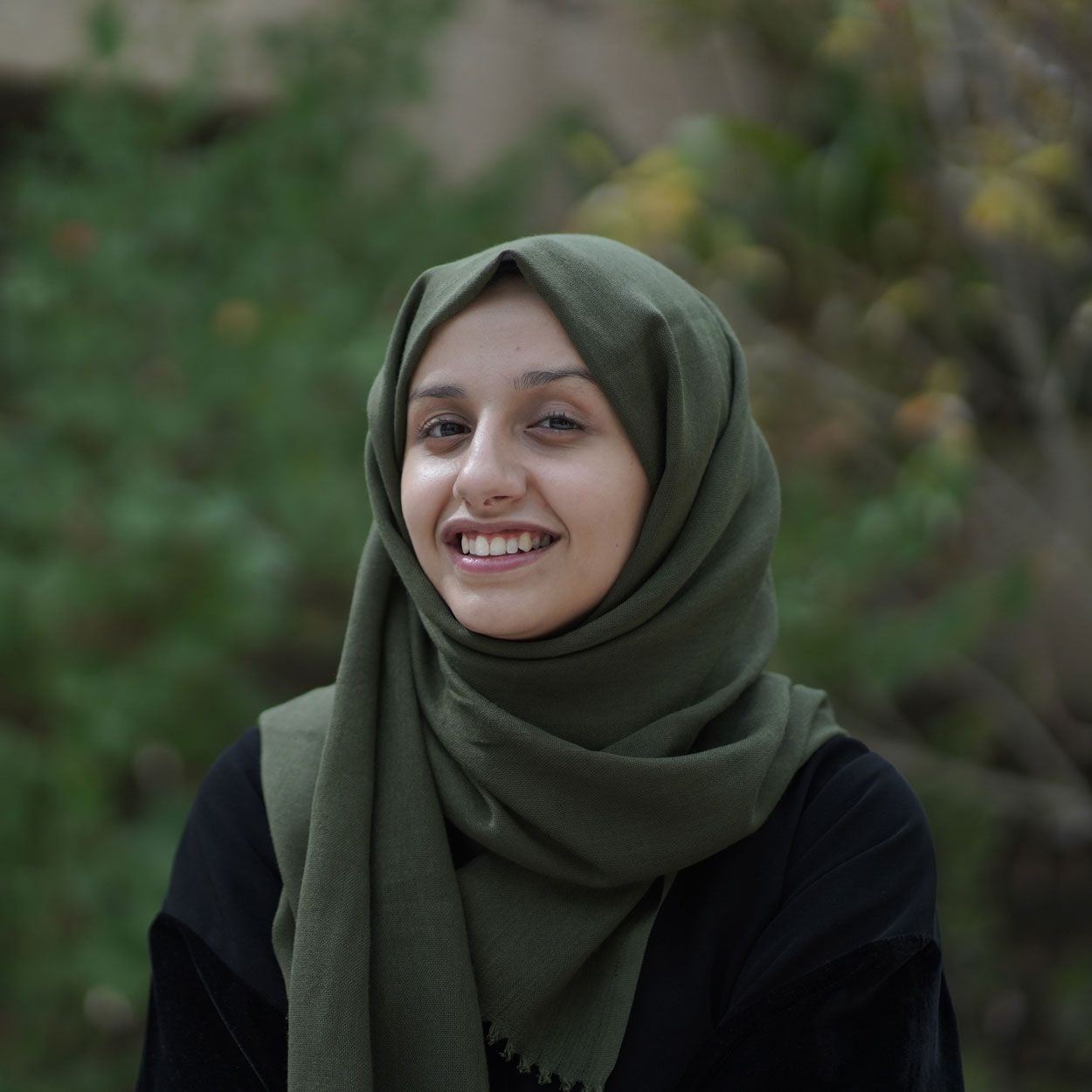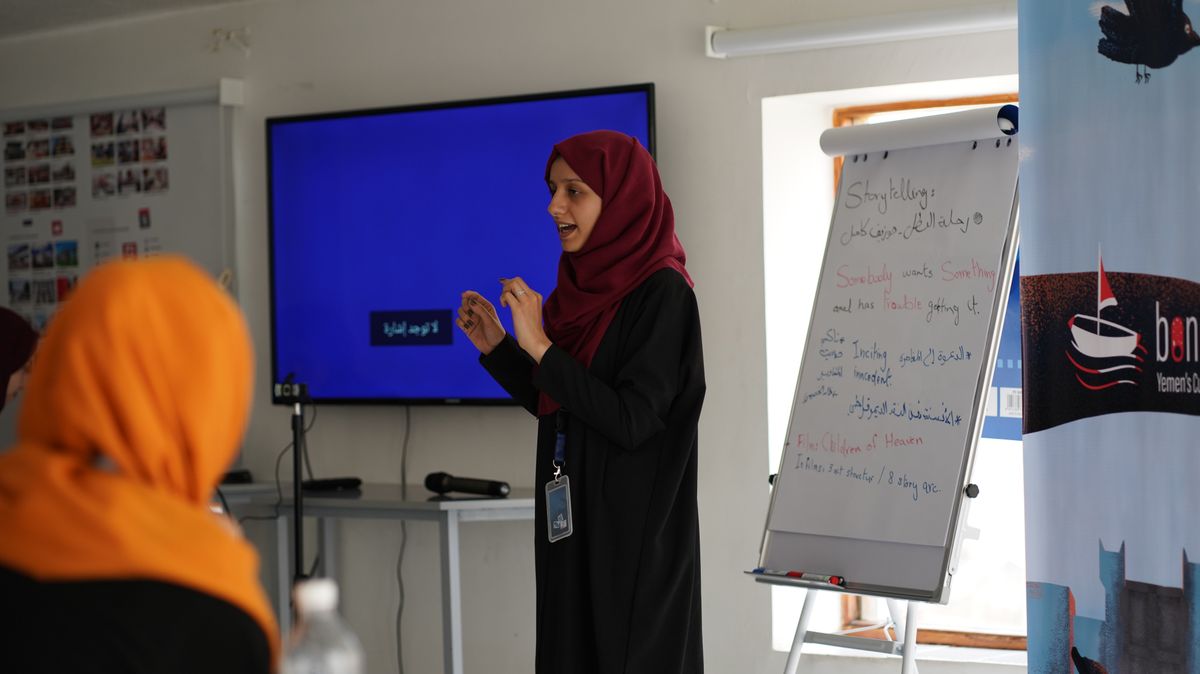Yemeni women face many challenges in a society where restrictions limit their roles and isolate them, often without regard to their legal rights.
In this interview, we spoke with Sarra Abdulrahman, co-founder of the "Boncast" platform, about her experience with these challenges and the opportunities for equity in Yemeni workplaces
Yemeni Women's Voices Platform: What is your perspective on inequality in Yemen, and how does it affect your career?
Sarra Abdulrahman: In Yemeni society, there is a lack of awareness about what inequality truly means, and many people are unaware that their rights are not being adequately obtained. There is a lack of equality between men and women and between different intellectual and social groups. I believe the current situation requires that more people know their rights so that they can demand equality.
It's important to note that my circumstances do not represent all women in Yemen. As someone who has had access to educational resources, I am part of a small minority in Yemeni society, and my perspective on this issue is different from others.
In my career, I have not personally suffered from inequality as much as I have noticed it in the lack of opportunities for women in Yemeni society compared to other cultures.

YWVP: Do you think there is fairness and equality in your field of work, including opportunities and entitlements?
SA: The community where I work is conscious of the need for equality between men and women; therefore, I do not face significant problems. However, I experience societal clashes when I share certain things related to my travels and interactions with men, especially as a single woman. This is a recurrent situation that all women experience, but it does not affect my professional life as much as it is a societal issue. On the other hand, women's role is tangible in my work environment, with most administrative positions occupied by women.
Women often face restricted
access to jobs that require fieldwork.
YWVP: Have women reached the same administrative positions as men? Do women face difficulties in getting these positions?
SA: Within the limits of my work and what I see, women have reached higher positions and proven themselves, but it is still limited to the administrative and office sectors. I remember studying at a school in Sanaa where the principal was one of the most competent people I have ever met. Since I was young, I have witnessed women who held administrative positions and proved themselves well. However, women often face restricted access to jobs that require fieldwork or work outdoors, which are traditionally dominated by men.
Regarding difficulties, yes, women face rejection by society. Despite my age, work, success, and achievements, I still hear gossip such as "work is all her life!" and "she hasn't started a family yet!". Women who spend longer in the workplace, moving away from social life, are subjected to scathing social criticism. Women in their workplaces face challenges no matter how much they try to prove themselves. The changes and biological distinctions that exist are being stereotyped about women.
YWVP: What changes do you believe are necessary to achieve equality?
SA: To achieve equality, we must increase awareness and enhance women's understanding of their rights. This can only happen through broad changes that include educational curricula, interpersonal communication and infrastructure. On an individual level, we must continue to provide advice and education.
There are also restrictions
on women's travel.
YWVP: Are women provided with sufficient training and development opportunities?
SA: I cannot speak for all Yemeni women since many do not have access to the same opportunities as me. However, there are opportunities in my field of filmmaking and content creation that are oriented towards women. Recently, particular attention has been given to building women's capacities in this field. However, in other sectors, opportunities are limited for women, and even if they do exist, women are often prevented from obtaining them.
There are also restrictions on women's travel which make it difficult to access training opportunities in other areas, particularly in northern governorates. Even discussing these issues or sharing experiences is often met with societal rejection.
YWVP: How has technology contributed to your work and professional development?
SA: As we work in the media industry, social media plays a crucial role in keeping us up-to-date with the latest news and trends. Staying technologically literate and familiar with new publishing methods is essential.
As no institutions or universities can provide training on the latest technologies, we have to rely on online workshops and training programs.
No institutions or universities
can provide training on
the latest technologies.
YWVP: Have women been able to effectively use technology to communicate their voices and creativity? What are the obstacles they face?
SA: Unfortunately, many women lack the necessary skills to use technology effectively, whether due to limited access to equipment and the internet or inadequate training in communication methods. While I have had the opportunity to attend educational courses, this is not the case for most Yemeni women.
Many women lack basic skills such as email communication and building a professional profile, which hinders their ability to obtain training opportunities and scholarships. Moreover, the absence of institutes that train women in photography, editing, and filmmaking has resulted in fewer female filmmakers and photographers.
Most female photographers in the labour market specialise in wedding photography. The only way for women to enter the job market in these fields is to learn from those already working in production companies.
YWVP: Are there any appropriate solutions that we can find to achieve equality and eliminate discrimination, especially in the professional world?
SA: Women must continue to have access to opportunities that allow them to build their skills and succeed in their chosen fields. However, the reality is that many women still face limitations due to the prevailing belief that women are not as capable as men.
No institutions or universities
can provide training on
the latest technologies.
To expand the scope of opportunities available to women, we need to focus on education and instilling the right concepts so that girls grow up believing in equality and seeing it as their fundamental right.
Women must be aware of their rights to equality and are empowered to demand them. While we may not be able to achieve these goals individually, we must have faith in their existence and continue to promote them.
Instilling these ideas in individuals will lead to their spread from mothers to daughters, in circles of friends, and within work cultures and structures.
All pictures are courtesy of Sarra Abdulrahman.
